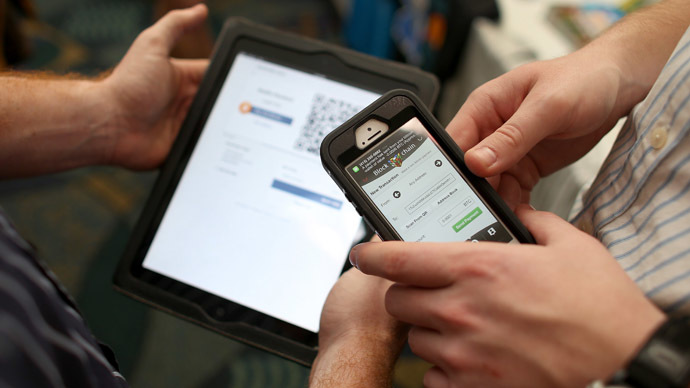12 cybercimes a second: Beware rise in mobile app fraud, Russian anti-hacking czar warns

Every second at least 12 internet users in the world fall victim to cyber criminals and the number keeps increasing every year, it has been revealed. A surge in viruses targeting mobile apps is a new disturbing trend in cyber-attacks.
A significant number attacks – 19 percent – target financial assets, while the number of cybercrimes organized with the purpose of mere mischief-making is now extremely low.
These statistics come from a high-ranking official in Russia’s Interior Ministry responsible for cyber security.
"Every second 12 people in the world become victims of cyber criminals and this figure is growing every year, studies estimate,” Aleksey Moshkov, the head of the cybercrimes Bureau of Special Technical Measures, said at an IT and information security forum in Moscow on Thursday.
“Russia does not lag behind the world," Moshkov said. “In 2013, crimes registered in telecommunications and computer technology increased by 8.6 per cent."
Last year alone, the Bureau thwarted hacker attacks aimed at defrauding Russian citizens of a total of around $28 million, he said.
According to one of the recent surveys by computer security firm Kaspersky Labs and B2B International, 62 percent of respondents had at least one incident of cybercriminals attempting to steal financial information.
The convenience of online shopping and banking services are among the major risk factors for end users, Kaspersky said.
“The added convenience for law-abiding users almost always creates new security concerns, and cybercriminals are cashing in. Banking Trojans, ransomware, fakes of banking and shopping websites – the crooks have a sizeable arsenal of techniques to steal money,” Kaspersky said in a statement. “Like any technology, online financial services have their pros and cons,” said the digital security group, as cited by technology news website Humanipo.com.
Of the 62 percent of users who reported they had been victims of cybercrime, 41 percent said they had lost money they were unable to get back.
“Today’s practices only increase the risk of a malicious attack, or the loss or theft of a device, as well as the loss of critically important personal data, such as personal photographs, videos, audio, sensitive work documents, and in the end, this could all lead to major financial and moral damages,” Kaspersky Lab said.
Kaspersky Lab’s co-founder and CEO Evgeny Kaspersky said in an interview to Reuters this week that banking applications on Android phones are most vulnerable to cybercrimes.
He said his statistics show that 99 percent of mobile attacks are targeting Android-based phones, since Apple has strict controls and does not allow third-party applications.
Research published last month by the UK government also adds to the grim statistics.
It revealed that cyber criminals swiped more than £1 billion ($1.65 billion) from British bank accounts in one year alone.
“People can get lulled into a false sense of security with online shopping – you wouldn’t go into the middle of a busy shop and start shouting out what your pin number is,” security firm Sophos’s head of security research, James Lyne, said.
Almost one in five adults said they had lost at least £500 ($325) when falling victim to online scams or from shopping on unsecure websites, UK government research showed.
The majority of smartphone and tablet computers neglect using antivirus and anti-spyware security software, which is also a reason for the upsurge of cybercrimes, the conference was told.
According to Moshkov, people usually associate the term “computer virus” with personal computers, but the number of malicious programs targeting mobile gadgets is constantly growing.















